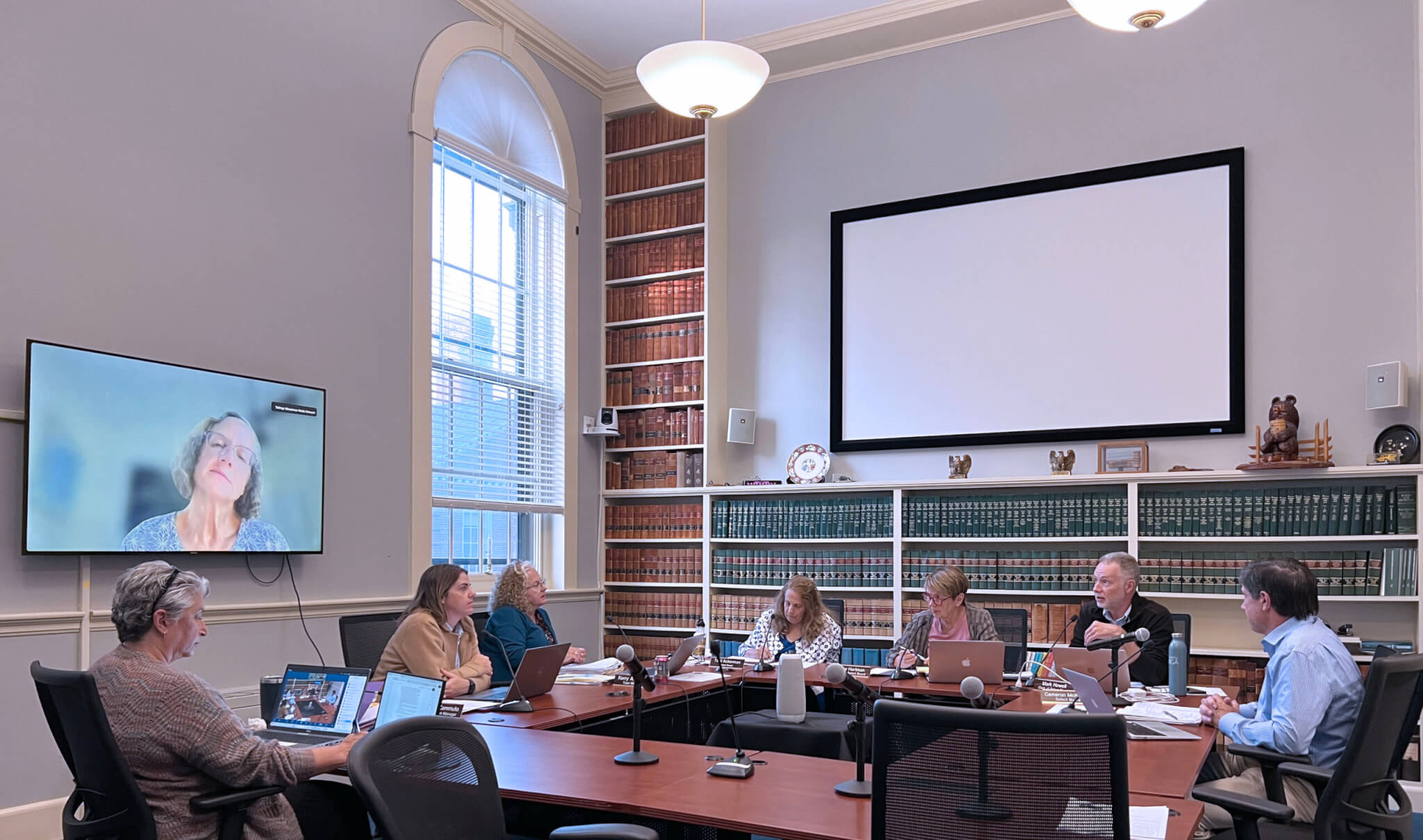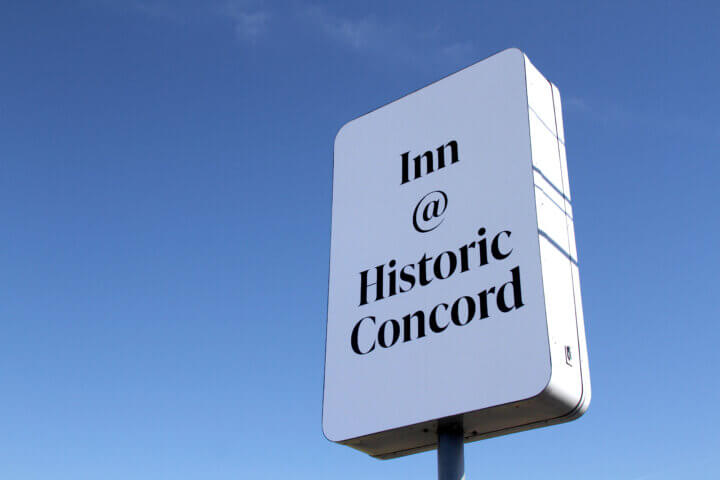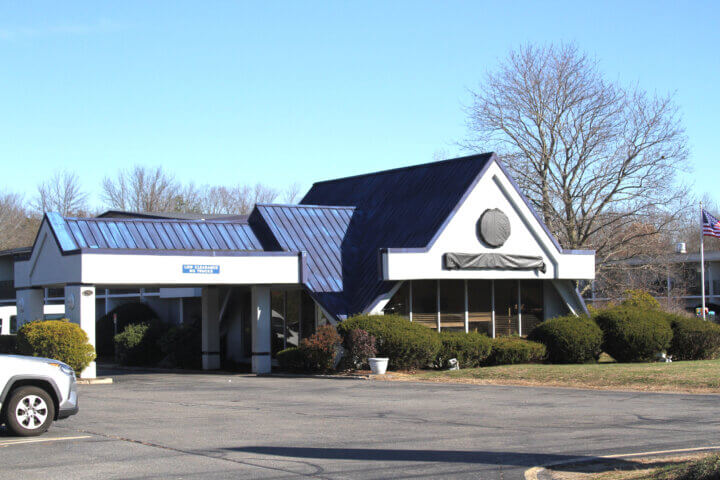By Celeste Katz Marston — Celeste@concordbridge.org
After an intense discussion, the Select Board agreed Monday night on the framework of the town manager’s recommendations — save one, for the moment — for how to parcel out millions in remaining federal Covid relief funds.
As Town Manager Kerry Lafleur reminded the Board, in fiscal year 2022 Concord received just over $5.65 million in American Rescue Plan Act (ARPA) funding to offset the economic wallop of the pandemic.
The town allocated about $3 million between fiscal years 2022 and 2024. After certain adjustments, about $2.85 million remains available. All ARPA funds must be committed by December 31 and spent by the end of 2026.
Unsurprisingly, demand for the money outstripped supply, so Lafleur and her team narrowed the field to about a dozen priorities.
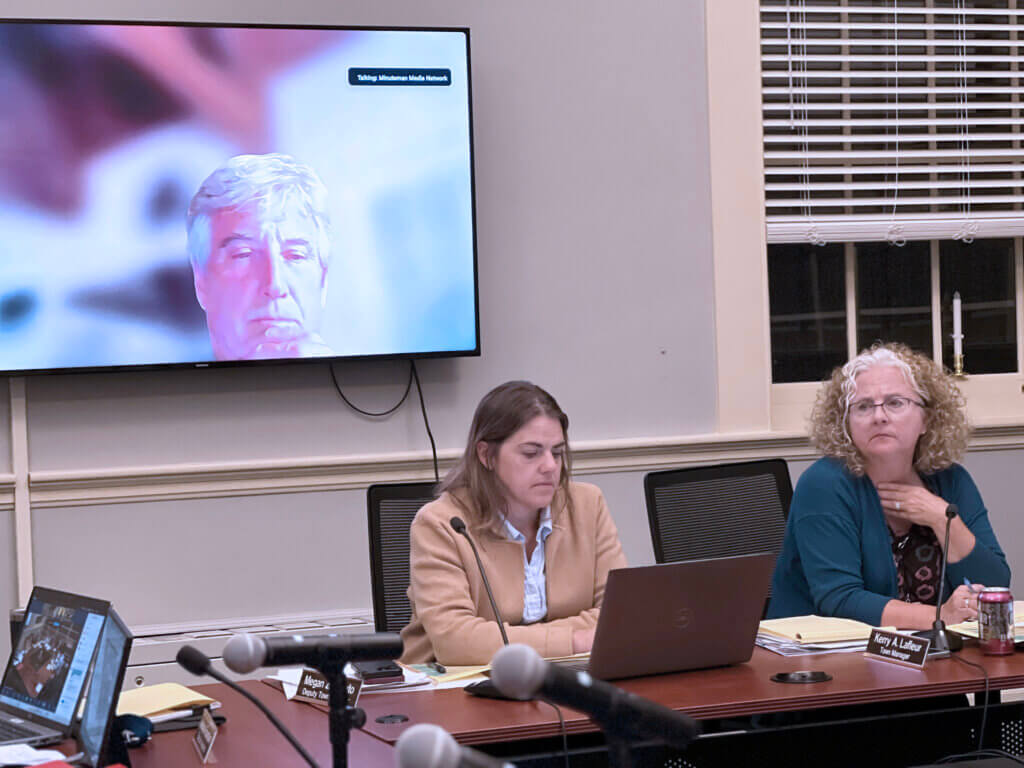
Photo: Celeste Katz Marston/The Concord Bridge
Among her preliminary recommendations:
- $1 million to remediate the Baker Avenue culvert. “This culvert has failed, [and] the fix was not budgeted. This is a critical expense,” Lafleur told the Board. “Once we have our stormwater enterprise fund up and running and we are collecting a stormwater fee, we would not expect to find ourselves in the position of not having funding for these types of [issues].”
- $500,000 to prioritize the purchase of the state-owned property at 91B Main Street to expand affordable housing options.
- $450,000 to complete improvements of the bottleneck intersection of Baker Avenue and Main Street.
- $125,000 to design and permit a multi-modal path, in partnership with Thoreau Farm and Minute Man National Historical Park, linking the park to Concord Center via town-owned land.
- $125,000 for a tree initiative tied to the commemoration of next year’s 250th anniversary of the start of the Revolution.
- $100,000 to replace 42 Concord Police body cameras. “There is a strong concern by the police chief that we will have an issue with [the] existing equipment before the 250,” Lafleur said.
- $100,000 for options analysis related to the artificial turf at Doug White Field.
- $100,000 to update town payroll technology — a move projected to save at least $50,000 per year.
- $75,000 to address drainage problems in the White Pond area, particularly on Dover and Darton Streets, “where we’re seeing more and more severe flooding,” Lafleur said.
- $50,000 for the town to work with the state Department of Transportation on improvements identified in its study of the perilous Route 2 corridor.
- And $9,400 for sidewalk improvements on Lowell Road at Concord Market, with funds matched by the landowner.
The lone project pulled from the list for further consideration: $150,000 in startup costs to shift the Concord Fire Department from basic to advanced life support (ALS) ambulance service.
Earlier this year, CFD won nearly $1 million in Federal Emergency Management Agency funding to make the move to ALS. Surrounding towns have already done so as Concord has continued to rely on an outside EMS contractor.
Though not outright rejecting the ALS funding, the Select Board said it would hold off to hear more about the transition from Fire Chief Thomas Judge when he discusses the upgrade with the Finance Committee.
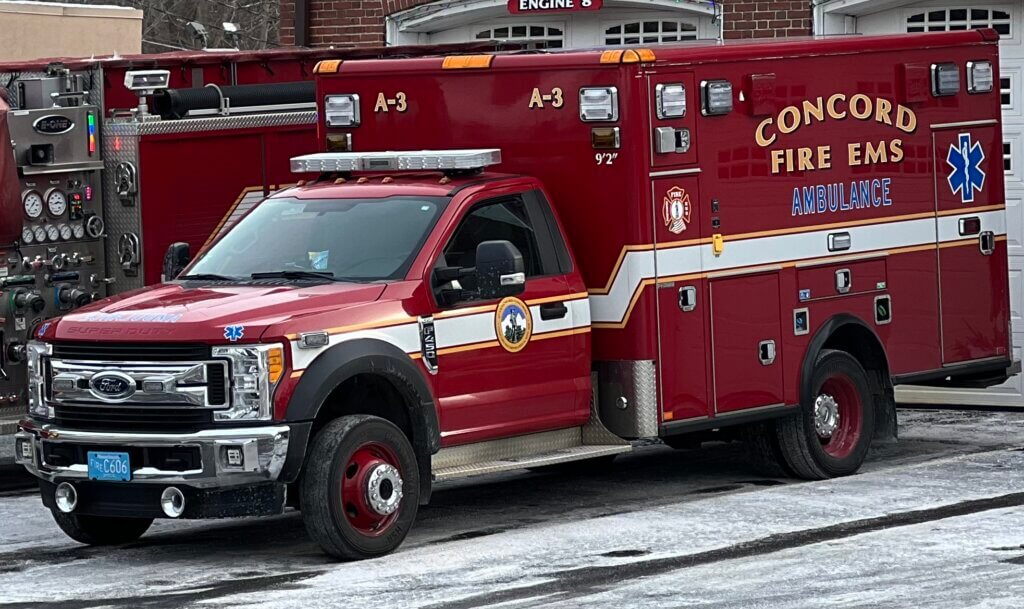
Board members also agreed more spending might be merited on Route 2.
“I think that our ability to influence the outcome of what happens in the Route 2 corridor probably is directly proportional to the resources that we put in,” Board Clerk Mark Howell said.
Lafleur also noted that Concord Municipal Light Plant Broadband had asked for $3.5 million to “make some improvements, particularly in the Center,” but the request was “financially outside of the scope of what we could manage” within the ARPA framework.
That “doesn’t mean that those projects won’t go forward, because they are needed and necessary,” she said, but they’re “likely to be funded just through rates.”


